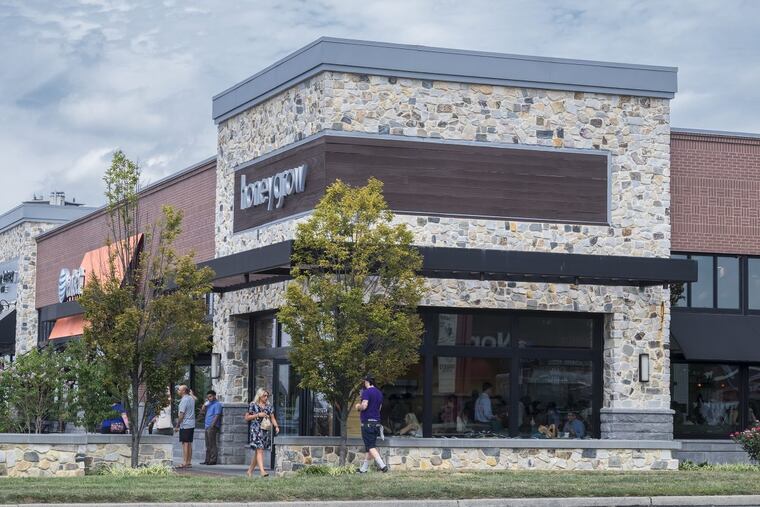Bargain shopping? Income investors may like beaten-down REITs
Investors are captivated by some of the high-dividends REITs are throwing off right now.

February was a brutal month for REITs, or real estate investment trusts. So March may be a shopping opportunity.
If you're a value investor — meaning you buy when stocks sell off, and bargain-hunt — then it may be time to look at REITs. Many offer handsome dividend income for seniors, retirees, and others who are living off their portfolios. The sector has been beaten down so badly that the Vanguard REIT ETF (VNQ), a good indicator for the sector, has dropped from roughly $92 a share in mid-2016 to $72 in early February.
"It's important to recognize the reason you own REITs and the opportunities that exist today," noted Brad Stone, REIT analyst and author. He owns REITs like Digital Realty (DLR), Ventas (VTR), Realty Income (O), and Simon Property Group (SPG), as well as AvalonBay (AVB).
REITs are often valued in terms of the income they provide in relation to bonds. REITs currently offer a yield premium of about 1.75 percent over 10-year Treasuries' 2.9 percent yield, wider than the historical average of 1.14 percent over Treasuries, indicating some sort of value when compared with fixed income, wrote institutional investor Cohen & Steers in a note to clients.
And then there are individual REITs to examine more carefully, particularly those that are tied to the embattled retail sector. For instance, do you want to own a REIT that invests in shopping malls when those malls are fighting off internet shopping giant Amazon or e-commerce generally?
Investors are captivated by some of the high dividends REITs are throwing off right now, but it's not just the absolute dollar amount you'll get every month or every quarter — but whether the dividend will grow consistently, said Scott Crowe, chief investment strategist at CenterSquare in Philadelphia. CenterSquare has nearly $10 billion in assets under management.
"We like REITs such as Brixmor or Federal Realty, for instance, over one such as [Pennsylvania Real Estate Investment Trust], because of the debt they're carrying," Crowe explained. A company such as PREIT (PEI) is carrying 10 times debt to EBITDA (earnings before interest, taxes, depreciation and amortization), while Federal Realty's ratio is lower at five times EBITDA, he said.
Heavy debt can be a burden if and when the economy turns or interest rates continue to rise, as the Fed is expected to hike short-term rates again in 2018.
PREIT has a tempting, high-dividend yield at 8.3 percent, "but a significant portion of assets it owns are somewhat stressed by e-commerce. That's an open question what happens to those going forward. At a minimum, they have more leverage than other REITs. However, we would argue that the extent to which the market will price in bad news is overdone."
Let's take Federal Realty Investment Trust (FRT) as another example. The REIT traded as high as $169 in mid-2016 and now fetches $117 a share, with a dividend yield of 3.4 percent.
"Federal Realty has a good chunk of portfolio value in Philly. They have some of the highest-valued properties such as Bala Cynwyd Shopping Center, Wynnewood and Willow Grove Shopping Centers, as well as Ellisburg Circle in Cherry Hill," said Wall Street-based REIT analyst Floris van Dijkum, managing director with Boenning & Scattergood.
"Some people say, just buy the REITS with the highest yield, but they can be the most risky financially. A lot of department stores are closing and filing for bankruptcy, you have to spend money to redevelop those and perhaps fix the balance sheet. And I wouldn't choose those for an income strategy, because the dividend won't grow any time soon," he added.
At Federal Realty, "the absolute dividend yield is lower, but it will grow every year. It's the growth of the dividend. That's how you have a better-performing stock. When we do have a recession, those with the less leverage tend to outperform. We're in the later innings of the economic growth cycle," he said.
Van Dijkum also recommends KIMCO (KIM), which owns Suburban Square in Ardmore, and is developing the site at Broad Street and Washington Avenue in Center City, with Target as a tenant; and Brixmor (BRX), which owns the Roosevelt Mall on Cottman Avenue, Whitemarsh Shopping Center in Conshohocken, Plymouth Plaza in Plymouth Meeting, and Bensalem Square.
"Brixmor is one of the safer REITs out there," with dense shopping centers and tenant demand, he said.
Crowe, whose firm CenterSquare invests for the AMG Managers CenterSquare Real Estate Fund, says that for mom-and-pop Main Street investors, "be cautious on low-productivity retail owners. That's really the area where it's an open question, exactly how these play out. As real estate investors, you want to grow rents. But when e-commerce kills the need for your asset, that's a risk. Some retail strip malls may be value traps."
The fund owns REITs including Simon Property Group (SPG), Prologis (PLD), AvalonBay Communities, Boston Properties (BXP), Malvern-based CubeSmart (CUBE), HCP Inc. (HCP), Alexandria Real Estate Equities (ARE), GGP Inc. (GGP), Welltower (WELL), and a new asset class, single-family homes, American Homes 4 Rent (AMH), according to most recent holdings.